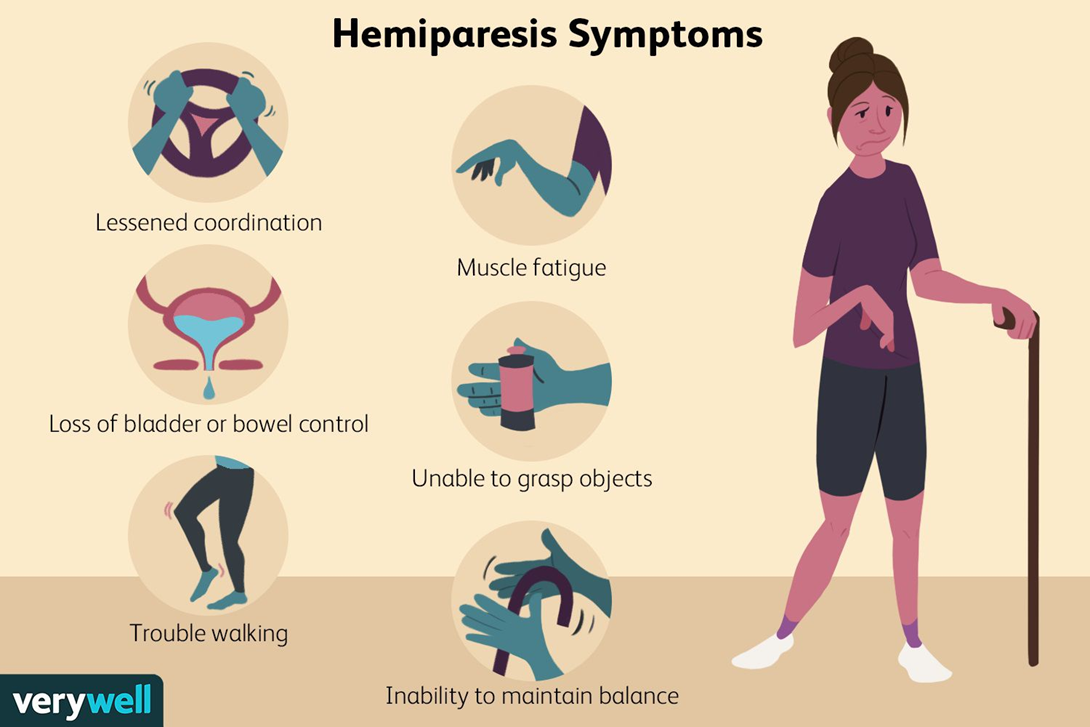A nurse in the emergency department is assessing a young adult client who was administered a hypotonic IV fluid bolus for rehydration after collapsing at an athletic event. Which of the following findings indicates the client is experiencing water intoxication?
Hypernatremia
Weak pulses
Muscle weakness
Exaggerated reflexes
The Correct Answer is C
Choice A reason: Hypernatremia is not a sign of water intoxication, but rather the opposite condition. Hypernatremia means high sodium levels in the blood, which can occur when the body loses more water than sodium, such as in dehydration, diabetes insipidus, or excessive salt intake. Water intoxication causes hyponatremia, which means low sodium levels in the blood, due to excessive water intake or retention.
Choice B reason: Weak pulses are not a specific sign of water intoxication, but rather a general sign of poor perfusion or circulation. Weak pulses can have many causes, such as hypotension, shock, heart failure, or peripheral vascular disease. Water intoxication can cause hypotension, but it can also cause hypertension, depending on the volume status of the client.
Choice C reason: Muscle weakness is a sign of water intoxication, as it reflects the effect of low sodium levels on the neuromuscular system. Sodium is essential for nerve and muscle function, as it helps generate electrical impulses and contractions. When sodium levels drop too low, the nerves and muscles become less responsive and weaker. Other signs of water intoxication affecting the nervous system include confusion, headache, seizures, and coma.
Choice D reason: Exaggerated reflexes are not a sign of water intoxication, but rather a sign of hyperreflexia, which is a condition of overactive reflexes. Hyperreflexia can have many causes, such as spinal cord injury, stroke, multiple sclerosis, or electrolyte imbalance. Water intoxication can cause electrolyte imbalance, but it usually leads to hyporeflexia, which is a condition of reduced or absent reflexes.

Nursing Test Bank
Naxlex Comprehensive Predictor Exams
Related Questions
Correct Answer is B
Explanation
Choice A reason: Cheddar cheese is not a good food choice for maintaining water intake, as it contains only about 37% water¹. Cheese and other dairy products are also high in sodium, which can increase the water loss through urine.
Choice B reason: Broccoli is a good food choice for maintaining water intake, as it contains about 89% water². Broccoli and other vegetables are also rich in vitamins, minerals, and antioxidants, which can benefit the child's health and hydration.
Choice C reason: Whole-wheat bread is not a good food choice for maintaining water intake, as it contains only about 35% water³. Bread and other grains are also high in carbohydrates, which can increase the water retention in the body.
Choice D reason: Almonds are not a good food choice for maintaining water intake, as they contain only about 4% water⁴. Almonds and other nuts are also high in fat and calories, which can contribute to weight gain and inflammation.
Correct Answer is ["B","C","D"]
Explanation
Choice A reason: Administering antiemetics following the meal is not an appropriate action for a client who is at risk for malnutrition. Antiemetics are medications that prevent or treat nausea and vomiting, which can interfere with oral intake and hydration. However, antiemetics should be given before the meal, not after, to reduce the likelihood of postprandial nausea and vomiting. ¹²
Choice B reason: Providing mouth care before feeding is an appropriate action for a client who is at risk for malnutrition. Mouth care can improve the client's appetite, taste, and comfort, as well as prevent oral infections and dental problems that can affect food intake. ³⁴
Choice C reason: Assessing for pain prior to mealtime is an appropriate action for a client who is at risk for malnutrition. Pain can reduce the client's appetite, mood, and ability to eat comfortably. The nurse should assess the client's pain level and provide adequate pain relief before offering food. ⁵⁶
Choice D reason: Removing the bedpan from the client's sight is an appropriate action for a client who is at risk for malnutrition. The presence of a bedpan or other unpleasant stimuli can cause the client to lose appetite, feel nauseated, or associate food with negative emotions. The nurse should create a pleasant and comfortable environment for the client to eat. ⁷⁸
Choice E reason: Discouraging snacks between meals is not an appropriate action for a client who is at risk for malnutrition. Snacks can provide additional calories, protein, and micronutrients that the client may not get from regular meals. Snacks can also help prevent hunger, fatigue, and hypoglycemia between meals. The nurse should encourage the client to have healthy snacks that are high in energy and nutrient density.
Whether you are a student looking to ace your exams or a practicing nurse seeking to enhance your expertise , our nursing education contents will empower you with the confidence and competence to make a difference in the lives of patients and become a respected leader in the healthcare field.
Visit Naxlex, invest in your future and unlock endless possibilities with our unparalleled nursing education contents today
Report Wrong Answer on the Current Question
Do you disagree with the answer? If yes, what is your expected answer? Explain.
Kindly be descriptive with the issue you are facing.
